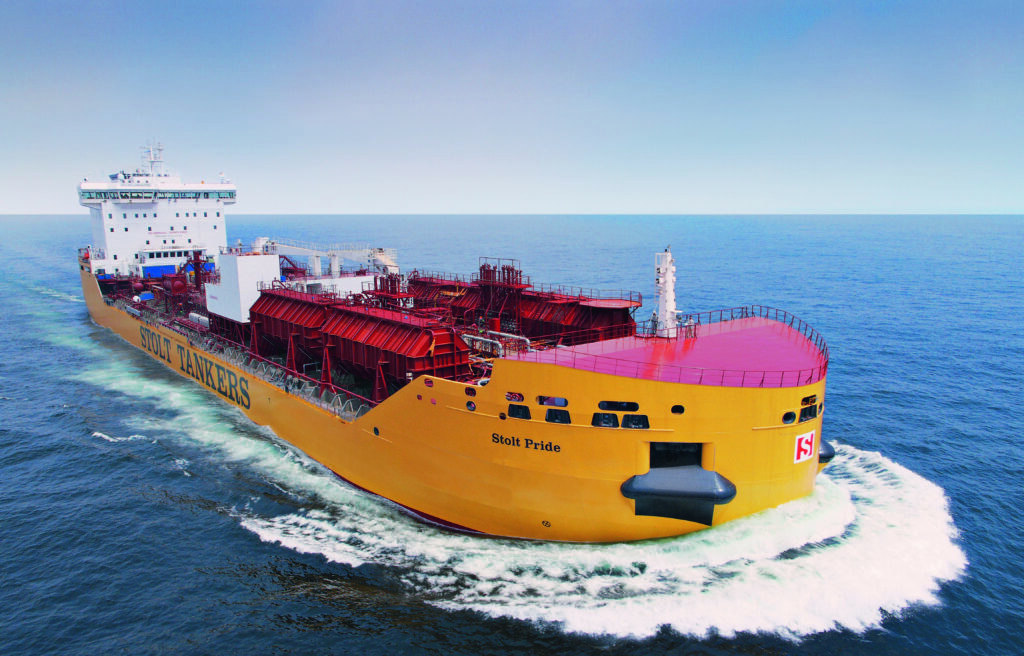Stolt joins zero carbon shipping initiative
28th May 2021

Stolt Tankers and Mærsk Mc-Kinney Møller Center for Zero Carbon Shipping have signed a Partnership Agreement that formalises their joint working. With this agreement, Stolt Tankers becomes an official partner to the Center, committing to long-term collaboration around the development of zero carbon solutions for the maritime industry.
Through this partnership the two organisations commit to extensive knowledge sharing and to exploring future fuel pathways where Stolt Tankers brings valuable expertise around the challenges and safety aspects of handling fuels and chemicals both at sea and in terminals.
Other possible areas of collaboration include energy efficiency opportunities and new technologies where Stolt Tankers has a long history of looking across and beyond the shipping industry as a driver of innovative solutions. As a partner, Stolt Tankers will directly contribute through secondments of R&D- and shipping experts as well as test capacity of its own vessels in relevant demonstration projects and activities.
Lucas Vos, President Stolt Tankers, commented: “At Stolt Tankers, we are committed to working with other industry leaders, our customers and suppliers to build a zero-carbon maritime industry. I strongly believe that the knowhow, innovation and creativity needed for a greener future cannot be achieved by any one company alone and am excited to have joined the Mærsk Mc-Kinney Møller Center for Zero Carbon Shipping so that we can solve some of the decarbonisation challenges that our industry faces, together.
“Our team will bring valuable insights to the Center through our advanced knowledge and expertise, not only in the chemical tanker segment, but by leveraging the wider knowledge of our colleagues across the Stolt-Nielsen business. I am proud to be part of an organisation that is helping to create a sustainable future for all.”
In welcoming Stolt Tankers on board, CEO Bo Cerup-Simonsen says: “With Stolt Tankers, we are getting a partner with extensive knowledge and expertise in transport and handling of fuels and chemicals which is critical for assessing viable pathways for future fuels. They bring an innovative spirit which is evident in their operations, their impressive project portfolio and their commitment to a carbon neutral future for shipping. We look very much forward to the collaboration.”
Shipping’s road map to decarbonisation
With 70.000 ships consuming 300 tonnes of fuel each year, global shipping accounts for around 3% of global carbon emissions, a share that is likely to increase as other industries tackle climate emissions in the coming decades.
Achieving the long-term target of decarbonisation requires new fuel types and a systemic change within the industry. Shipping is a globally regulated industry, which provides an opportunity to secure broad-based industry adoption of new technology and fuels.
To accelerate the development of viable technologies a coordinated effort within applied research is needed across the entire supply chain. Industry leaders play a critical role in ensuring that laboratory research is successfully matured to scalable solutions matching the needs of industry. At the same time, new legislation will be required to enable the transition towards decarbonisation.

